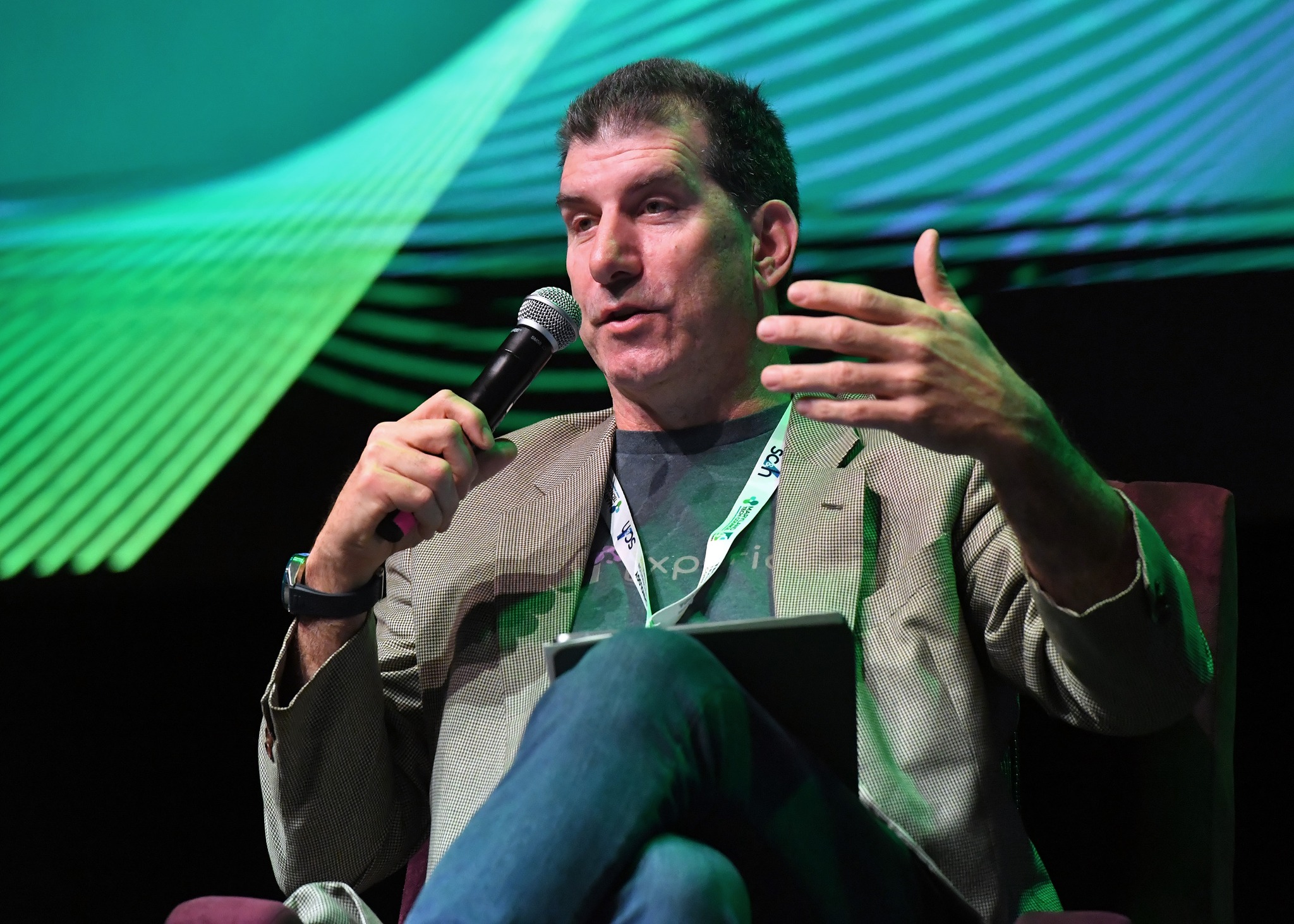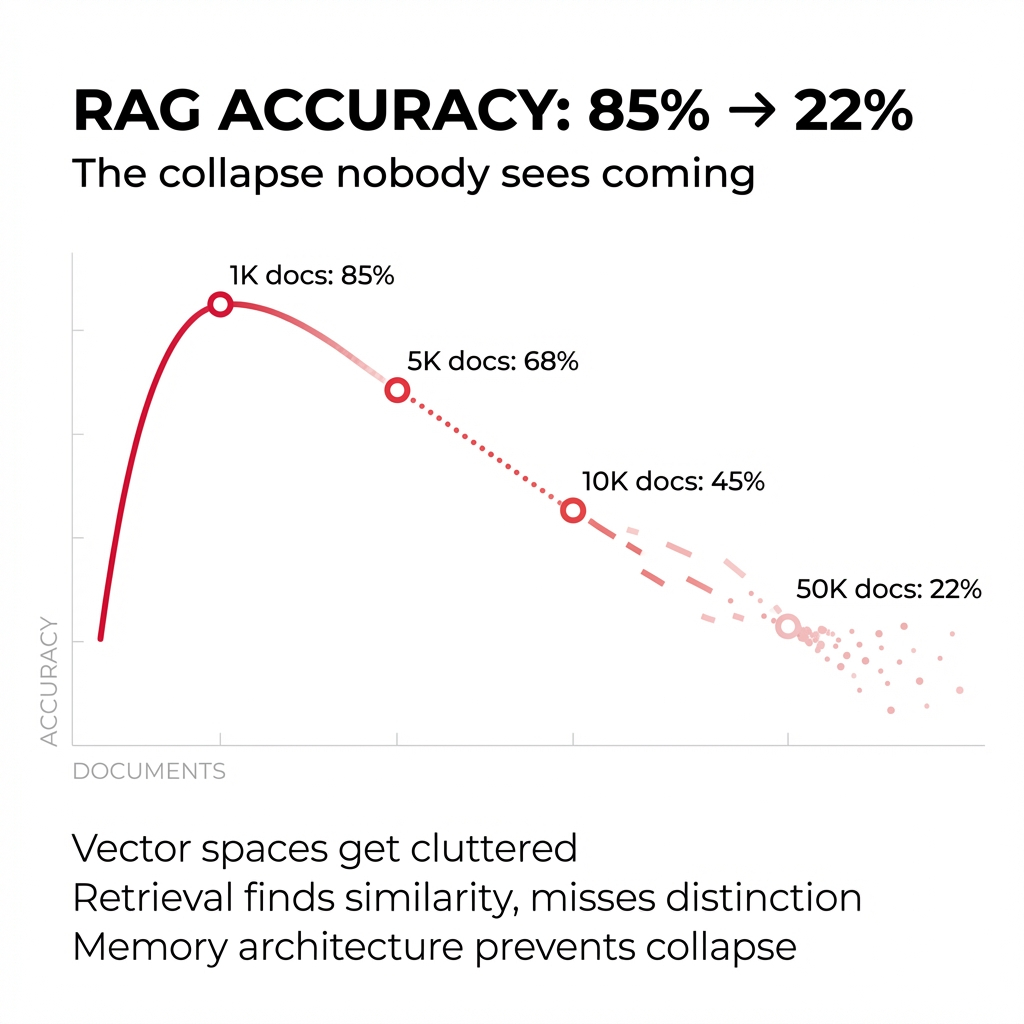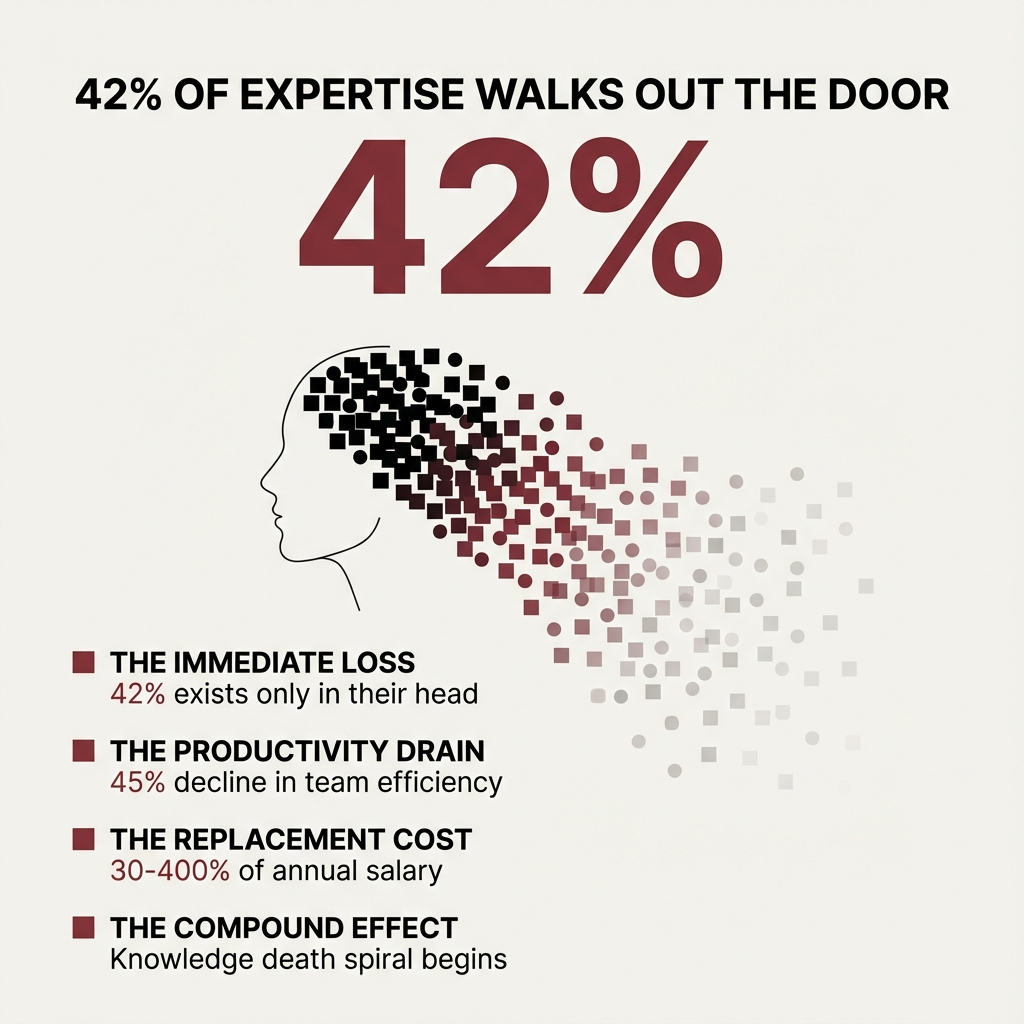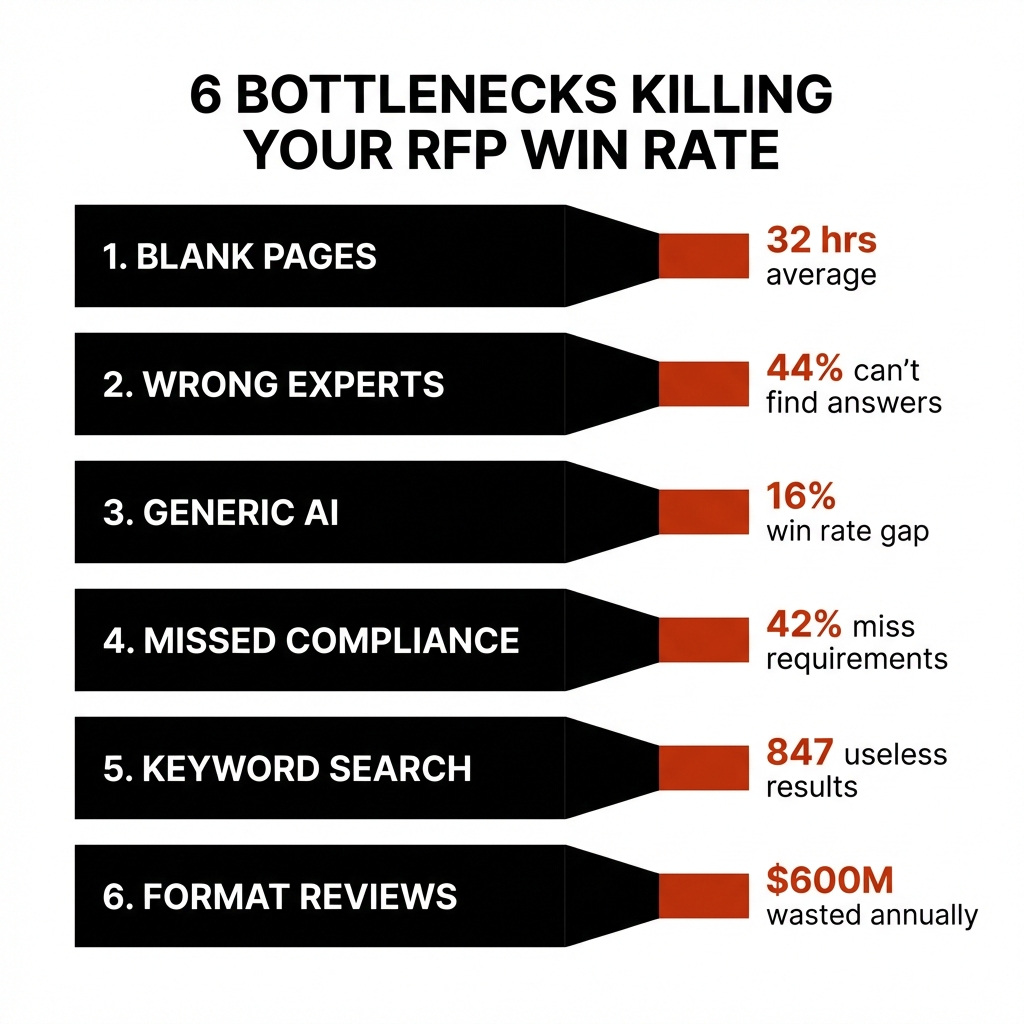DATE
CATEGORY
READING TIME
Professional Services Firms: Your Operating System Is Broken (And Incremental Fixes Won't Save You)
November 2022 changed everything for consulting and services firms. ChatGPT launched and suddenly everyone had access to the world's knowledge at their fingertips. The core value proposition we'd been...

November 2022 changed everything for consulting and services firms. ChatGPT launched and suddenly everyone had access to the world's knowledge at their fingertips. The core value proposition we'd been...
November 2022 changed everything for consulting and services firms.
ChatGPT launched and suddenly everyone had access to the world's knowledge at their fingertips. The core value proposition we'd been selling for decades—specialized expertise delivered rapidly—became a commodity overnight.
I've spent 30 years in this industry. Built Portal Solutions from scratch to $7M before selling to Withum. Led their digital practice and expanded it. I thought I understood transformation.
I was wrong about what was coming.
The Moment I Realized We Were All Becoming Irrelevant
Late 2023, I missed a critical client meeting. My team was slammed, so they asked me to draft a Statement of Work. I had dozens of emails, three meeting recordings, notes scattered everywhere. I was overwhelmed.
I fed everything into my AI copilot. Asked it to parse the materials, summarize what the client wanted, and propose three different technical approaches.
30 minutes later, I had a complete SOW ready for team review.
The task that should have taken me days took half an hour. After some refinement, it was done.
That's when it hit me: if I can do this, our clients can too. We're becoming less relevant by the day.
Most consulting leaders who have this realization panic or deny it. I saw an opportunity—but only if we stopped treating AI as a tool and started treating it as our operating system.
Why Companies Hire Consultants (And Why That's Changing)
Historically, companies hired us for six reasons:
Specialized expertise they don't have in-house
Objective perspective free from internal politics
Efficiency gains through proven processes
Cost savings by avoiding expensive mistakes
Strategic guidance for high-stakes decisions
Resource flexibility during growth or crisis
AI is systematically dismantling every single one of these advantages.
Routine tasks? AI handles research, analysis, modeling, and reporting faster and more consistently than junior consultants ever could.
Insights and recommendations? AI-driven tools analyze massive datasets and produce recommendations that rival human experts.
The talent pyramid? Collapsing. Firms need fewer juniors for grunt work and more senior talent for creative problem-solving and client relationships.
Client empowerment? Organizations are building internal AI capabilities that replicate what we used to offer. They're internalizing our value.
The consulting firms surviving this transition are becoming strategic facilitators and implementation partners, not execution teams. The ones clinging to the old model are already dying—they just don't know it yet.
The Five Pillars Every AI-First Firm Needs
After that SOW moment, I spent months figuring out what separates firms that will thrive from those that will disappear. It comes down to five pillars:
1. Human-AI Partnership
AI doesn't replace consultants. It supplements them. The firms winning this transition put AI and humans on the same team, each doing what they do best.
2. Domain Mastery
When everyone has access to general knowledge, deep domain expertise becomes your moat. Your AI needs to understand your specific industry's nuances, terminology, and context.
3. Institutional Memory
This is the big one. Your firm has years of accumulated knowledge locked in document management systems, emails, chats, meeting minutes, ERP and CRM systems. Most of it is unstructured. Unless you know what to search for or who to ask, you'll never find it.
Immediate access to what's unique to your firm—that's your competitive advantage.
4. AI Embedded in Daily Workflow
AI can't be a side project. It needs to automate mundane tasks and be available where your people actually work.
5. Trusted and Traceable AI
In professional services, you're liable for your recommendations. You need AI that shows you why it generated an answer, not just the reasoning path. Full traceability matters.
Why RAG Fails When Precision Matters
Most firms experimenting with AI are using RAG (Retrieval Augmented Generation). It's basically semantic search plus ChatGPT.
RAG works fine for small document sets. But when you need to find a specific contract clause and its obligations across thousands of contracts, RAG breaks down. You get false results. Incomplete answers. Hallucinations.
That's why we built Experio on knowledge graphs, not RAG.
Knowledge graphs provide structured context. They understand relationships. They know the difference between a customer and a vendor. They preserve reasoning paths so you can trace how an answer was generated.
When I realized vector embeddings weren't cutting it, I knew we needed a fundamentally different approach. Knowledge graphs are hard to construct, but they're the only way to achieve the precision professional services demands.
The Brutal Reality of Transformation
Here's what nobody talks about: transforming an existing consulting firm into an AI-first organization is like changing all four tires on a bus while it's moving at highway speed.
You have to reinvent your staffing model. For years, we used the pyramid—junior consultants working up the ladder with layers of supervision. AI upends this. You need fewer inexperienced people and more people with wisdom and human skills AI can't replace.
You have to rethink your entire org structure. Training. Hiring. Mentoring.
And you have to blow up your business model.
AI is killing time-and-billing. When a task that used to take three weeks now takes four hours, the value of your hours just collapsed. Firms will have to completely revamp their value, pricing, and billing models.
When you're running a successful firm, making these changes is terrifying. You're asking people to abandon what's working today for an uncertain future.
But the alternative is worse.
The AI-Native Threat You're Not Seeing
While established firms debate whether to experiment with AI, AI-native boutique firms are already operating at a fundamentally different level.
Discovery: No more dozens of human-led interviews and hundreds of hours compiling results. AI agents do this at scale, 24/7, without constraints on how many people are interviewed.
Execution: AI creates sound project plans based on your firm's best-run projects. It finds the right available people to maximize utilization. It provides AI assistance at every step.
Project monitoring: No more status reporting. AI uncovers challenges and notifies client and firm leadership immediately.
These firms are faster, more efficient, and more scalable than traditional consultancies. A mid-sized firm competing against them with a traditional model is bringing a calculator to a supercomputer fight.
How Much Time Do You Actually Have?
I give mid-sized consulting firms 2-3 years before "experiment and see" becomes "too late."
Large firms are already moving with massive multi-million-dollar AI investments. This gives them an edge and allows them to move down market. But legacy firms drag. Their size is both advantage and anchor.
This presents an opportunity for mid-sized firms willing to take the risk.
You're more agile. You can move faster. You can rebuild your operating model without the bureaucracy that slows down the giants.
But you have to start now. And you have to go all in.
What AI-First Actually Looks Like
At Experio, we're building this from day one without legacy constraints. Here's what we're doing differently:
We built a proprietary ingestion pipeline that connects to all of a firm's data sources. We extract, classify, enrich, and infer structured concepts based on an organization's ontology—its taxonomy, schema, and vocabulary.
We go live in less than four weeks with a consolidated knowledge graph holding all your knowledge, highly categorized in concepts and terminology proper to your industry and adapted to your firm.
Traditional knowledge management systems take years and depend on people actually using them. We automate the entire process.
That's the speed advantage of being AI-first from inception.
The Choice You're Actually Making
Every professional services leader faces the same decision right now.
You can keep encouraging your team to experiment with AI tools. You can run pilots. You can optimize around the edges.
Or you can accept that AI isn't a tool—it's your new operating system.
The firms that make the first choice will survive for a while. Maybe a few years if they're large enough. But they'll be forced into transformation eventually, reactively, under pressure, with fewer options.
The firms that make the second choice will lead the transformation. They'll rebuild their operating model intentionally. They'll define what AI-first consulting looks like instead of following someone else's playbook.
I spent 15 years building Portal Solutions the traditional way. Another 7 years at Withum. I know how hard it is to let go of what's working.
But I also know what's coming.
The question isn't whether your firm will need to make this transition. The question is whether you'll do it on your terms or someone else's.







